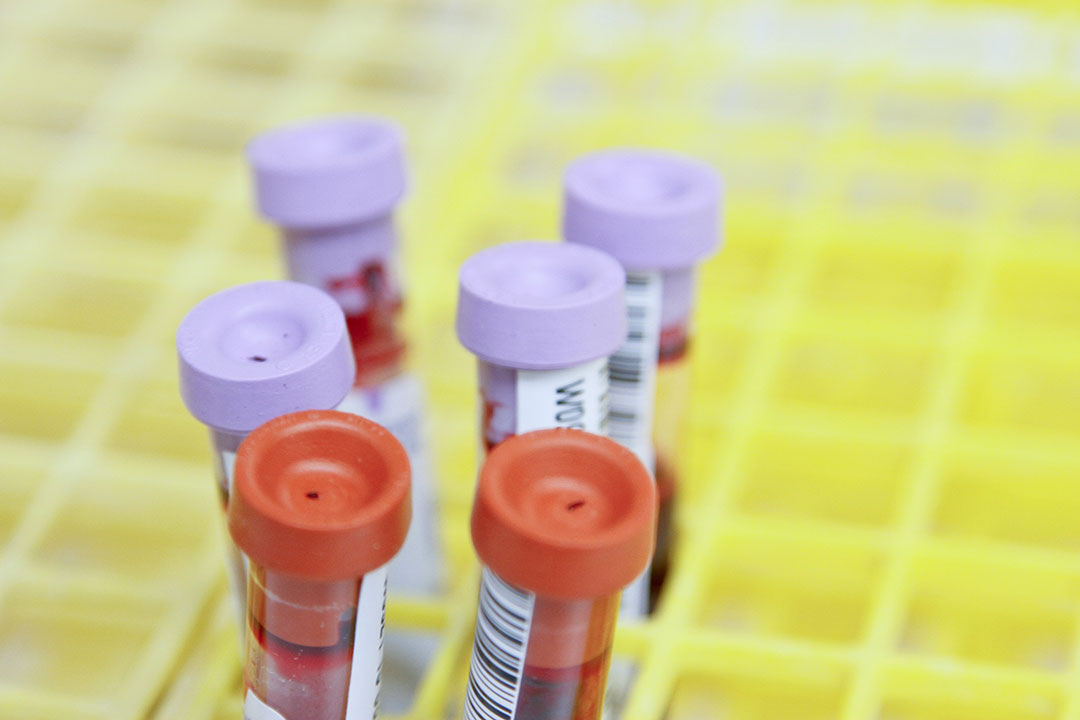Blood test could predict how long the protection provided by vaccines will last
A new study suggests that the durability of people’s immune responses to vaccines could be linked to sticky blood fragments called platelets, which aid clotting.
- 7 January 2025
- 3 min read
- by Linda Geddes

Some vaccines protect for months, while others provide lifetime protection. A recent study has provided new insights into why this might be, and could aid the design of future vaccines that produce more durable responses.
Many vaccines work by showing immune cells harmless fragments of bacteria or viruses, so that they can learn what they look like and rapidly launch a protective immune response should they encounter them again. A crucial part of this response is the production of antibodies by immune B cells, which stick to pathogens and prevent them from infecting host cells, as well as flagging them for destruction by the immune system.
Yet, while some vaccines such as those against smallpox and yellow fever induce antibody responses that can last a lifetime, responses to other vaccines, such as those against seasonal influenza, pertussis or malaria, gradually wane.
“The question of why some vaccines induce durable immunity while others do not, has been one of the great mysteries in vaccine science,” said Prof Bali Pulendran at Stanford University in California, US.
Immune signatures
Several years ago, he and his colleagues identified a ‘universal signature’ that could predict early antibody responses to many vaccines, based on molecular changes in short-lived immune cells called plasmoblasts. However, while this signature could help predict the strength of these initial responses, it couldn’t predict how long they would last.
Have you read?
Now the team has used a machine-learning program to identify an additional signature in the blood – measurable in the days following vaccination – that is associated with the strength of someone’s antibody response months later.
“The question of why some vaccines induce durable immunity while others do not, has been one of the great mysteries in vaccine science.”
- Prof Bali Pulendran, Stanford University
The program searched for molecular patterns in the genes, proteins and antibodies in blood drawn from 50 volunteers in the days and weeks after they received two doses of influenza vaccine, either with or without an adjuvant – an ingredient designed to boost immune responses.
Nurturing environment
The signature is largely based on tiny pieces of RNA found inside platelets – sticky blood fragments that aid clotting – and is thought to reflect events in bone marrow cells called megakaryocytes, which produce these platelets. “We think the platelets are a bellwether for what is happening with megakaryocytes,” Pulendran said.
Further experiments suggested that activated megakaryocytes produce nurturing molecules that increase the survival of a different group of bone marrow cells called plasma cells, which produce antibodies. Blocking these molecules reduced the survival of plasma cells.
The research, published in Nature Immunology, also found that this signature could predict the durability of people’s responses to seven other vaccines, including those against yellow fever, malaria and COVID-19, indicating not only which vaccines lasted longer, but also which vaccine recipients would produce a longer-lasting response.
Personalised vaccines
The next step will be to investigate why certain vaccines spur higher levels of megakaryocyte activation – research that could aid the development of more effective vaccines.
The signature could also form the basis of tests that could help speed up vaccine trials, as researchers must currently follow people for months or years to determine the durability of their responses to different vaccines.
Eventually, doctors might even be able to administer a blood test to help tailor vaccination schedules to individuals. Pulendran said: “We could develop a simple PCR assay – a vaccine chip – that measures gene expression levels in the blood just a few days after someone is vaccinated. This could help us identify who may need a booster and when.”
However, he cautioned that the factors underpinning vaccine durability were likely to be complex, and megakaryocyte responses may only be one piece of the story.







